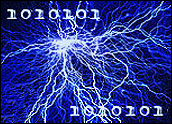
Fourteen tech firms have banded together to form a new industry alliance and cooperatively seek US$1 billion to $2 billion in federal funding to create a center for the development and manufacture of domestic lithium ion batteries for transportation applications in the United States.
The National Alliance for Advanced Transportation Battery Cell Manufacture is currently being advised by the U.S. Department of Energy’s Argonne National Laboratory, a national research lab and a leading developer of new battery technologies, which will continue to serve in an advisory role as the Alliance begins operations.
Central to the Alliance’s mission is the belief that lithium ion batteries will replace gasoline as the principal source of energy in future cars and military vehicles. Today, U.S. automobile manufacturers and defense contractors depend on foreign suppliers — increasingly concentrated in Asia — for lithium ion battery cells, the Alliance says.
Overseas Manufacturing
The key problem right now is that there is very little battery manufacturing in the U.S., which is both a potential national energy security risk — similar to a reliance on international petroleum — as well as a competitive domestic automobile manufacturing risk. Lithium ion battery cell manufacture is heavily subsidized in many countries, and the Alliance hopes to level the playing field.
“The domestic battery production is pretty woeful — and that’s probably a kind term for it,” Charles King, principal analyst for Pund-IT, told TechNewsWorld.
“What happened back in the ’90s when the technology came about is some U.S. companies looked to produce batteries in the U.S., but because the profits were so slim, they blew it off,” he explained, noting that because most of the electronics products that used batteries were already manufactured in Asia, there was good reason to have the battery facilities close to overall supply chains.
Still, King said, battery innovation in the U.S. is healthy — but most of the intellectual battery innovation has been shipped overseas or sold off to the companies in Asia that are manufacturing batteries.
“Supposedly there are as many as four dozen advanced battery plants being built in China, and as far as I know, there are none being built in the United States,” King said.
A New Battlefront for Car Manufacturers?
“A small, fragmented battery industry will not long survive in the face of determined Asian competition,” noted Ralph Brodd, a long time consultant to battery manufacturers.
“Other countries are investing heavily in the manufacture of lithium ion cells. Those countries understand that whoever makes the batteries will one day make the cars,” he added.
“The wakeup call we’ve got this year with the U.S. auto industry is that if the auto industry is going to regain health, it’s going to have to come up with more innovative vehicles,” King said.
The Initial Players
The founding members of the Alliance include 3M, ActaCell, All Cell Technologies, Altair Nanotechnologies, Dontech Global, EaglePicher Corporation, EnerSys, Envia Systems, FMC, MicroSun Technologies, Mobius Power, SiLyte, Superior Graphite, and Townsend Advanced Energy. The Alliance anticipates that additional battery developers and materials suppliers will join.
“U.S. truck and auto makers and representatives of the Department of Defense will be invited to serve on the Alliance’s advisory board,” noted Alliance attorney James J. Greenberger of Reed Smith.
The advisory board will help the cell makers move toward standardized cell formats that will simplify manufacture and ultimately lower the costs of cells.
New Tech, Old Path
The Alliance says it wants to replicate the success of Sematech, a government supported collaboration of U.S. semiconductor manufacturers formed in the 1980s to address the increasing migration of semiconductor manufacturing from the United States to Asia. Between 1988 and 1993, the Alliance said, Sematech raised $990 million in government grants and private investment to help U.S. manufacturers recapture their lead in semiconductor technology.
“Semiconductors and battery cells are both strategic elements of their ultimate end products,” noted Sanford L. Kane, one of the founders and a former director of Sematech, who has also assisted the formation of the Alliance.
“Sematech played a key role in improving manufacturing in the U.S. semiconductor industry, helping the industry revitalize itself, allowing the U.S. computer industry to develop and dominate the world market. Batteries will be to automobiles what semiconductors were to computers,” he added.
Still, King said Sematech is no longer limited to domestic organizations.
“At the time Sematech was originally formed in the mid ’80s, the U.S. had really lost its place in semiconductor manufacturing and most of the fabs where in Asia, and there was a sense that the U.S. had to get back on the map, as it were,” King explained.
“What’s interesting is, in the mid ’90s, Sematech refocused its efforts to become an international consortium to create collaborative opportunities and innovations. The membership now … there are an awful lot of overseas companies involved in the group,” he said.
“The biggest chip fabs are in Asia, though there are some cutting edge fabs in the U.S., like IBM’s Fishkill facility. But the commodity processors are largely still produced overseas,” King noted.





















































More greedy slime lining up at the public trough ! Why don’t these parasites simply fund their own consortium and do what they wish. $1,000,000,000.00 to $2,000.000.000.00 of our dollars to assure their profitability is the usual ripoff. This AM ount of funding could be given to the taxpayers at the rate of $200 each worker (based of 100,000,000 workers) and we could all buy a bicycle and pedal past the offices of these battery makers with our index fingers raised in salute.